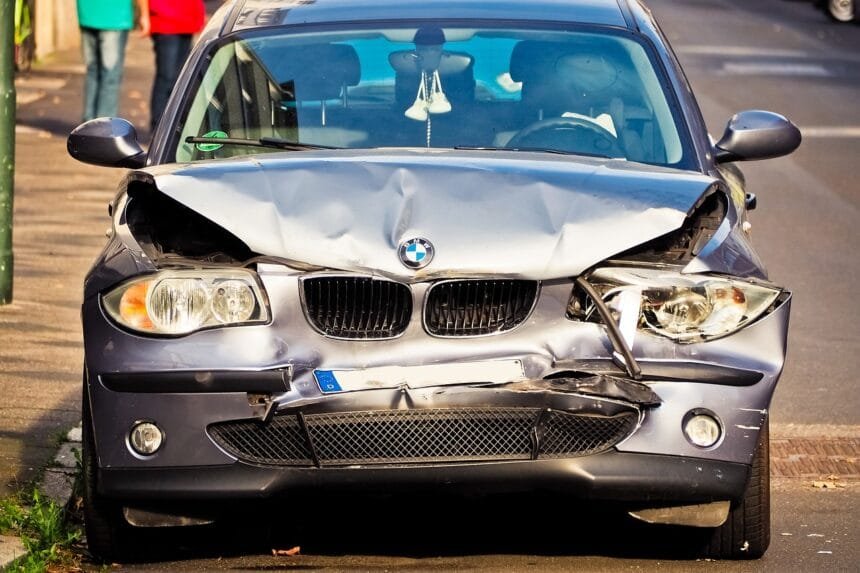Introduction
When your car is involved in an accident, one of the most common concerns is whether it is deemed “totaled” or not. What happens when your car is totaled but still drivable is an interesting scenario that often arises, and it leaves many car owners unsure of their options. A vehicle being totaled means that the cost to repair it exceeds a certain percentage of its value. However, in some cases, the car may still be drivable even after it has been declared a total loss. This article will explore the intricacies of what happens when your car is totaled but still drivable, including the insurance process, safety implications, and the choices available to you.
Understanding a “Total Loss” Vehicle
The term “total loss” or “totaled” refers to a situation where the cost of repairing a vehicle after an accident exceeds its current market value. Typically, insurance companies determine this based on a formula that compares the cost of repairs to the value of the car. However, what happens when your car is totaled but still drivable depends on various factors such as the severity of the damage, the safety of the vehicle, and the policy of the insurance company.
In many cases, a totaled car can still be driven, especially if the damage is mostly cosmetic or if the functional parts of the vehicle remain intact. While this might seem like a lucky break, there are still a number of important considerations.
Insurance’s Role in Determining a Totaled Vehicle
When your car is involved in a significant accident, the insurance company will typically send an adjuster to assess the damage. The adjuster will evaluate the extent of the damage and compare it to the car’s pre-accident value. If the cost of repairs is higher than a predetermined threshold—usually 70% to 80% of the vehicle’s value—the car will be declared totaled. What happens when your car is totaled but still drivable becomes a matter of determining whether the insurance company will still pay for repairs or if they will offer a payout instead.
Some insurers might allow you to continue driving a totaled car if it is still operational, though this often comes with stipulations regarding its safety and roadworthiness.
Safety Concerns When Driving a Totaled Vehicle
Even if your car is still drivable after it has been totaled, what happens when your car is totaled but still drivable often revolves around the potential safety hazards involved. Depending on the nature of the damage, your vehicle could pose a risk to both you and others on the road. If the car’s structural integrity is compromised, driving it may be dangerous, even if it appears to function normally.
For example, if the frame or suspension has been damaged, the car might not handle as well, increasing the risk of a further accident. Additionally, airbags that have deployed during the collision might not function properly in the future.
In some cases, the damage to the car’s electrical system might cause malfunctions that could lead to further problems. For these reasons, it’s crucial to have your totaled car thoroughly inspected by a professional mechanic before deciding to drive it.
What Happens When Your Car Is Totaled But Still Drivable: Your Options
When your car is totaled but still drivable, you have several options at your disposal. Here are some of the most common choices:
- Accept the Insurance Payout and Move On: If your car is declared a total loss and is still drivable, one option is to accept the insurance payout. The insurance company will assess your car’s pre-accident value and offer a settlement. The payout can be used to either purchase a new car or cover the cost of repairs, if you choose to retain the vehicle.
However, keep in mind that the payout might be less than what you owe on the car, especially if you have an outstanding loan. In such cases, you may need to negotiate with the insurance company or your lender.
- Keep the Car and Drive It: In some instances, you might decide to keep the car and continue driving it. However, this comes with risks, especially if the damage is significant. Many people choose this option if the car is still drivable and doesn’t pose an immediate safety risk.
When deciding to keep a totaled vehicle, it’s important to weigh the potential cost of future repairs, the risk of further damage, and whether the car can still be safely driven in its current condition.
- Repair the Car Yourself: If you have the skills and resources, you might choose to repair the car yourself. In this case, you would keep the vehicle, and the insurance company may give you the option to buy it back for a reduced amount. However, DIY repairs can be costly and time-consuming, and there is always the risk that the car might not be restored to its original condition.
- Sell the Totaled Car: Another option is to sell the totaled car, even if it is still drivable. You might sell it to a salvage yard or a third party interested in buying a car for parts or rebuilding it. Be aware that selling a totaled car might be difficult, as potential buyers may hesitate due to its totaled status.
- Donate the Car: If you don’t want to deal with the hassle of repairing or selling the totaled car, consider donating it to a charitable organization. Many charities accept vehicles in any condition, and you may be able to claim a tax deduction.
How to Protect Yourself When Driving a Totaled Vehicle
If you decide to drive your totaled vehicle, it is essential to take a few precautions to ensure your safety and compliance with the law. Here are some key steps to follow:
- Check the Safety Features: Ensure that the airbags, seat belts, and other safety features are still functioning properly.
- Get a Mechanic’s Inspection: Have a certified mechanic inspect the car thoroughly to identify any potential issues that could affect its drivability or safety.
- Consider Temporary Repairs: If the car is drivable but has cosmetic damage, consider making temporary repairs to prevent further deterioration of the vehicle.
- Know the Laws in Your Area: In some regions, driving a totaled vehicle may not be legal, especially if it has significant structural damage. Be sure to check with your local DMV to understand the regulations.
The Financial Impact of a Totaled Car
One of the most pressing concerns when your car is totaled but still drivable is the financial impact. If you still owe money on the car, the insurance payout might not cover the remaining loan balance. In this case, you might be left with a gap between the payout and the amount owed.
Gap insurance can help cover this difference, but not all insurance policies include this coverage. It’s important to review your policy and understand your options before deciding how to proceed with a totaled vehicle.
Additionally, if you continue driving the totaled car, you may face increased repair costs, lower resale value, and higher insurance premiums. On the other hand, accepting the insurance payout could leave you without a car, which might require you to purchase a replacement vehicle.
Conclusion
What happens when your car is totaled but still drivable is a scenario that can be both frustrating and confusing. The decision you make will depend on various factors, including the extent of the damage, your financial situation, and the safety of the vehicle. Whether you choose to accept the insurance payout, repair the car, or continue driving it, it’s important to consider both the short-term and long-term consequences.
Ultimately, ensuring your safety should always be the top priority. Be sure to carefully evaluate your car’s condition and seek professional advice before making any decisions. With the right information and careful consideration, you can make an informed choice about what to do when your car is totaled but still drivable.
FAQs
- Can I drive my totaled car?
Yes, you can drive your totaled car if it is still operational, but it’s important to have it inspected for safety issues before doing so.
- What happens to my insurance after my car is totaled?
Your insurance company will assess the damage and offer a payout based on the car’s pre-accident value.
- Should I repair a totaled car myself?
It’s an option, but repairing a totaled car yourself can be costly and might not restore it to its original condition.
- Can I sell my totaled car?
Yes, you can sell your totaled car, but its value will be lower than a non-totaled car.
- What is gap insurance?
Gap insurance covers the difference between what your car is worth and what you owe on the loan if your car is totaled.










